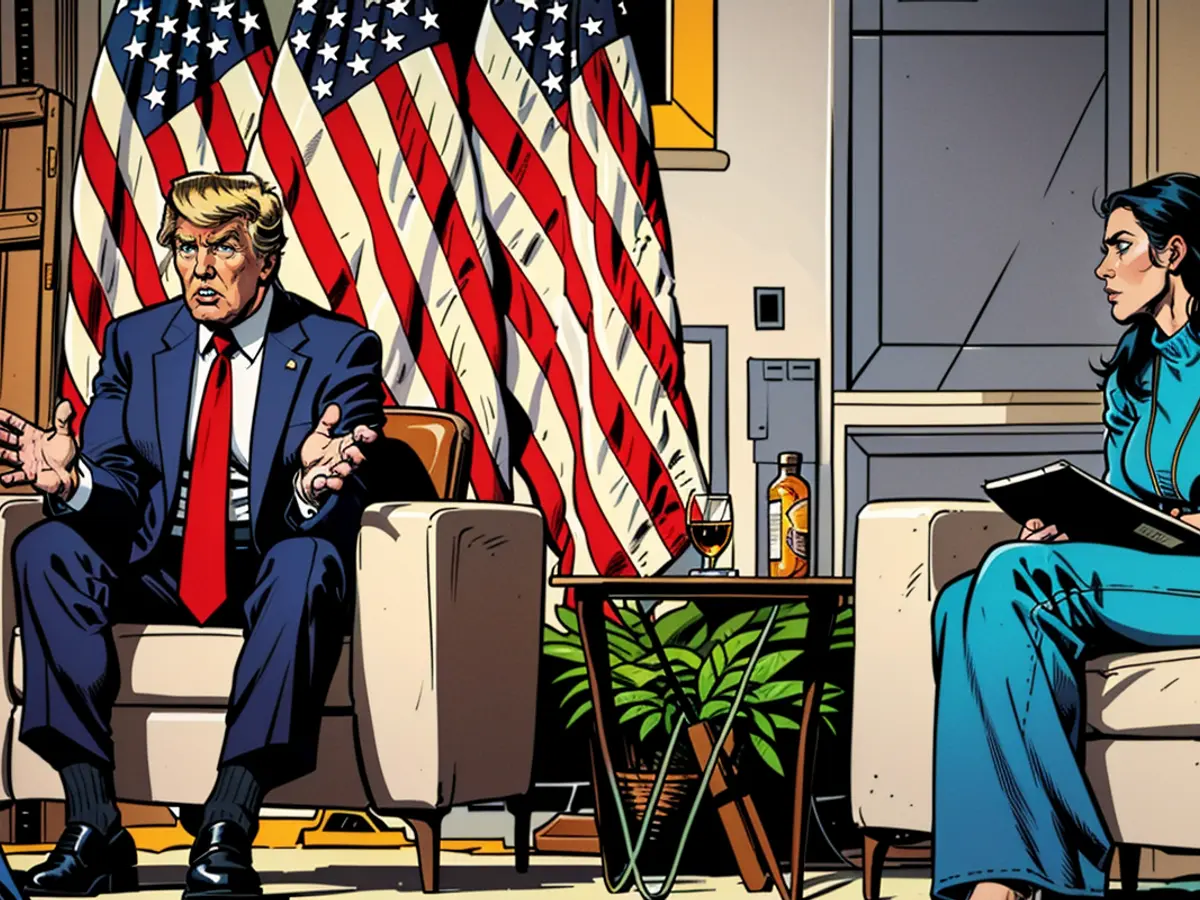Trump questions Harris' African-American identity in election campaign
Harris, the daughter of an Indian cancer researcher and an economist from Jamaica, has always identified as both Indian and African American. She studied at Howard University in Washington, a traditionally African American institution.
Trump now claimed, however, that his likely opponent in the November presidential election had only begun to describe herself as black later in her career to gain political advantages.
"She was always of Indian descent and campaigned only as Indian," said the right-wing populist at the National Association of Black Journalists (NABJ) event, "I didn't know she was black until she 'became' black a few years ago," Trump continued. "So, I don't know, is she Indian or is she black?" Trump also asked and added, "I respect both, but she obviously doesn't."
Harris quickly condemned Trump's remarks at an appearance in Houston, Texas, calling them an attempt to divide the country. "The American people deserve better," she said. "We deserve a leader who understands that our differences do not divide us, that they are a fundamental source of our strength."
White House spokesperson Karine Jean-Pierre was sharper in her response, calling Trump's comments "repugnant" and "offensive." "No one has the right to dictate who someone is or how they identify," said Jean-Pierre.
Harris is the first woman and the first person of African and Asian descent to serve as Vice President. This is not the first time Trump has used provocative false claims about the heritage of a political opponent.
In the past, the right-wing populist questioned whether Barack Obama, the first black president in US history, was born in the United States - which would have meant Obama could not have become president. Born in the US state of Hawaii, Obama was forced to publish his birth certificate under Trump's pressure. Later, Trump questioned the authenticity of that document.
In the current campaign, Trump has also accused the Vice President of being anti-Semitic. Harris' husband, Doug Emhoff, is Jewish.
Trump's appearance at the NABJ was particularly heated. At the start, journalist Rachel Scott from ABC News confronted him with his previous derogatory remarks about African Americans, citing his doubts about Obama's US origins.
Trump then accused Scott of starting his appearance in a "terrible" and "rude" way. He also claimed to have done more for the black population than any other US president since Abraham Lincoln - who abolished slavery in 1863.
In recent days, Trump has attacked Harris in various ways. He mocked her frequent laughter, called her "crazy" and "radical left," and spread the blatant false claim that she wants to "execute" newborns.
The changing attacks show that Trump and his Republicans have not yet found a clear strategy for dealing with Harris in the campaign. Harris' approval ratings have improved significantly since 81-year-old President Joe Biden announced his withdrawal from the race on July 21 after weeks of debate about his mental fitness and endorsed Harris as the Democratic Party's presidential candidate.
The 59-year-old has been steadily working towards her nomination for the election on November 5th. An electronic vote by Democratic Party delegates is set to begin this Thursday, lasting for five days. Harris is the sole candidate and has already secured the support of 99% of participating delegates, according to party headquarters.
In response to Trump's statements, Harris' campaign released a statement emphasizing her lifelong identification as both Indian and African American, highlighting her participation in several election campaign events as a person of color.
The election campaign has seen Trump using similar tactics in the past, such as questioning Obama's birthplace and later the authenticity of his birth certificate.







